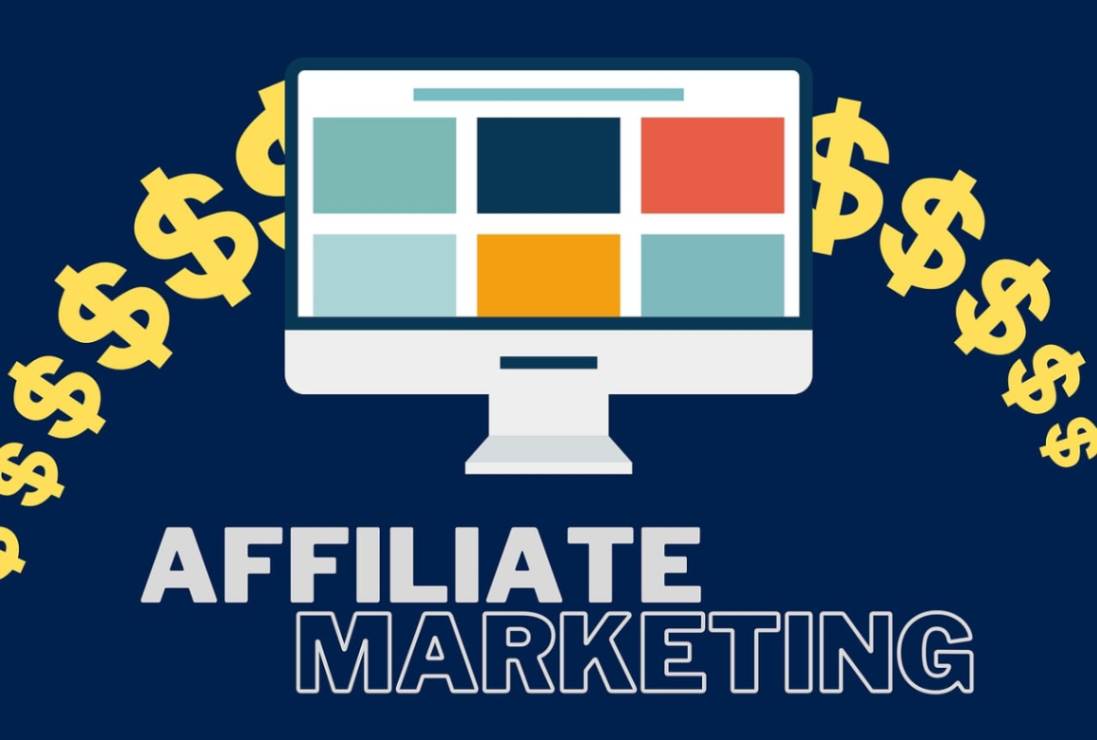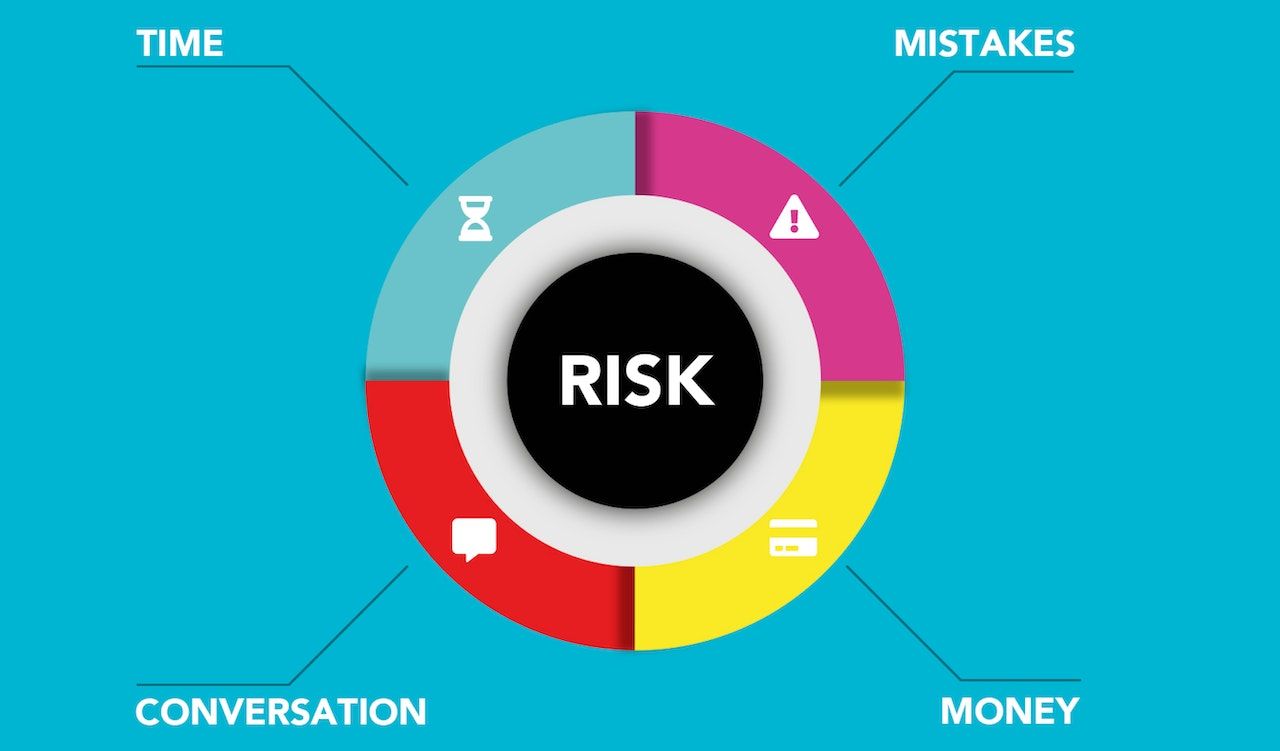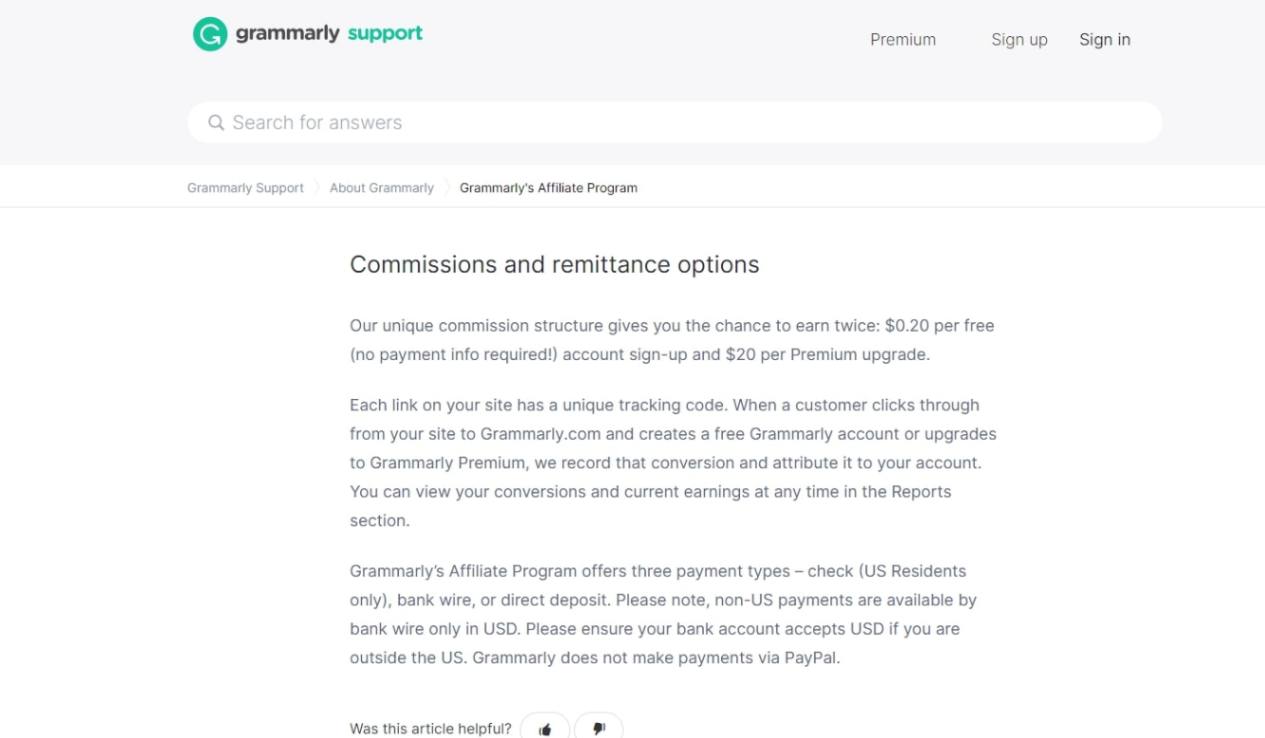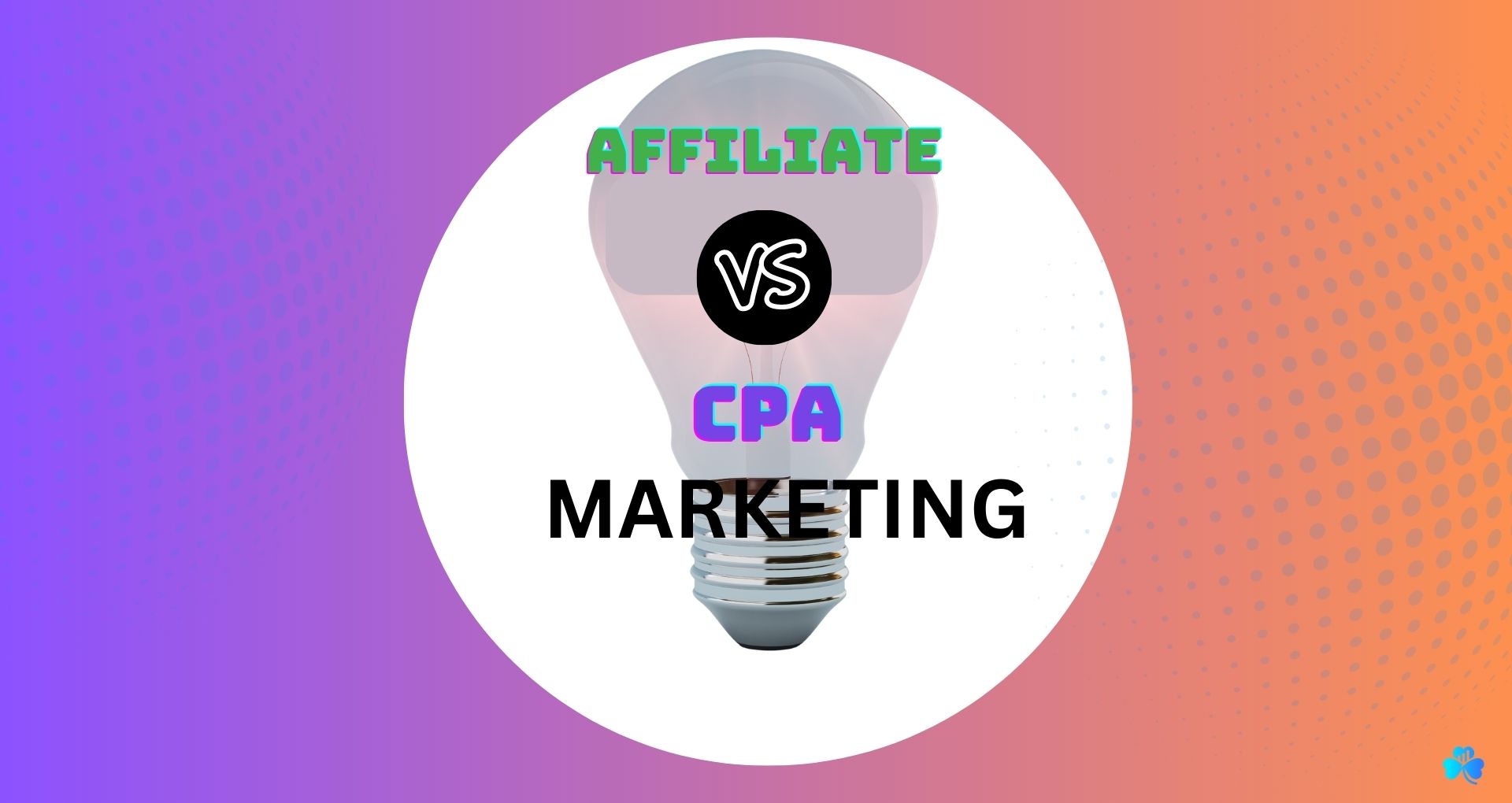The online business world is all about marketing. Naturally, marketing has different types; the most common are affiliate and CPA marketing. So, what are they, and how do they work?
In this blog post-CPA Marketing vs Affiliate Marketing, we will answer these questions and more while comparing these two in detail.
Also, if you are taking the first baby steps toward online marketing, you must read this post from start to finish. After the complete read, you will take away the following:
Basic concepts.
Details around affiliate and CPA marketing.
Different commission structures.
Commission differences between affiliate and CPA marketing.
Which one should you choose?
Some success stories with examples.
This article might contain referral links from our chosen partners, that may bring us a small commission at no additional cost to you. Please read our disclosure page for more details.
Understanding the basic concepts behind affiliate and CPA marketing
For a beginner, you need to start from the basics and try to grasp the concepts behind your work.
In addition, understanding the difference between these two types of marketing is paramount. These two are different; a decent marketer must differentiate them when they see an ad online.
CPA stands for Cost Per Action. The name cost per action marketing, or CPA marketing refers to the amount of money/fee an advertiser or marketer is paying, and action stands for a click, signup, or purchase.
Affiliate marketing is a commission-based process in which a marketer will advertise specific products and services.
Now, when that product or service is bought, the affiliate marketer will be paid a percentage of the fee that they paid. Similarly, an affiliate network will record the transaction.
In other words, a CPA marketing campaign is a paid campaign that you will run and pay for the service with money online or mobile ads (like Google ads) based on predefined actions like clicks, signups, or purchases.
Like affiliate marketing, the marketer may be paid a commission when the advertisement is successful.
Similarly, when affiliate marketing, you will get a specific referral link from the service or company you want to advertise.
You will be paid a predefined commission when a client or customer avails of that service from that link.

Understanding CPA Marketing
It is time for a deep dive. You already know the basics, like what CPA stands for and works around Cost Per Action. Let's look at its core principles.
Some of the core principles of CPA marketing that can help you drive engagement, conversations, and growth include but are not limited to:
Excellent COPY that speaks to the hearts. All of your CPA affiliate marketing revolves around good copywriting.
Perfect ad location selections.
Ideal ad designs are simple enough to convey your message at a glance.
Instilling a sense of urgency, which helps drive your CPA advertising campaign.
Personalization input concerning preferences and demographics of the target audience. It can include age, gender, area, etc.
To revisit, Cost Per Action (CPA) is an advertising model where you, as an advertiser, pay for a specific action or conversion.
Furthermore, the desired action in CPA campaigns could be a sale, lead, download, or any other predefined action.
Understanding Affiliate Marketing
It is the most common type of marketing and does not require a deep understanding of ad campaigns and other technicalities.

Simply, you need to get a referral or affiliate link from the businesses and encourage potential buyers to purchase that particular network or service.
One of the most common and income-generating affiliate partner programs is the Amazon associates program. It offers a mutually beneficial relationship between affiliate marketers and Amazon.
Affiliates (who do affiliate marketing) use different means like email marketing, blogging, social media, PPC banner ads, and other marketing channels.
Some of its fundamental principles are:
Collaborative partnerships between advertisers and affiliates, where both parties work together to achieve mutually beneficial outcomes.
Commission-Based structure where you as an affiliate earn a commission or a predefined financial reward for each successful action they generate for the advertiser.
This incentivizes affiliates to drive results and aligns their interests with the advertiser's goals.
Tracking and Attribution.
Targeted promotion is where you promote products or services relevant to their audience. In this type of promotion, you will leverage your marketing channels to target specific niches or demographics, increasing the likelihood of generating quality leads or sales.
Content Creation, like running a blog or guest posting, is where affiliates often create valuable content, such as product reviews, tutorials, or informative articles, to engage their audience and encourage them to take the desired action.
Quality content builds trust and enhances the effectiveness of affiliate marketing efforts.
Compliance and Ethical Practices ensure that affiliates disclose their relationships with advertisers, follow advertising regulations, and maintain transparency and integrity in their promotions.
It means if your blog/channel contains affiliate links, you must tell the readers/audience that you may earn a commission if they buy after clicking your link.
Comparing CPA Marketing and Affiliate Marketing
As we already discussed that CPA and affiliate marketing are different at their cores. Nonetheless, they can sometimes overlap, for instance, during CPA affiliate marketing.
So, naturally, there are a lot of similarities between them, as both revolve around commission and connection rates.
But that is not all; you must learn more to get a decent grasp on both CPA and affiliate marketing. So, let's understand affiliate commissions and the following CPA affiliate and model breakdown.
Commission Structure
If you wish to dig deeper into commission types for affiliate programs, you will need days to learn most of them.
Fortunately, we are discussing the most important types of marketing services; thus, we will focus on their commission structures only; rest assured, currently, they are enough for you.
Some of the common commission structures used are:
Flat-Rate Commission
In this structure, you earn a fixed commission for each successful action you generate leads. For example, you may receive a predetermined amount for each sale or lead that you are driving.
Percentage-Based Commission

You earn a percentage of the total sale value or the revenue generated from the action—the higher the commission percentage, the higher your cut.
Tiered Commission
This structure offers different commission levels based on performance levels. Your commission rates increase as you achieve higher performance targets. Its purpose is to motivate the affiliates to drive more conversions.
Recurring Commission - Best friend of an affiliate marketer
A recurring commission is a gold mine that keeps generating passive income until or unless the customers stop their subscription or opt out of the offered service.
In certain cases, you receive ongoing commissions for subscription-based products or services. You earn a percentage of each recurring payment made by the referred customers as long as they remain active.
Cost Per Lead (CPL)
Often, most CPA marketers rely on this commission structure to aim for lead generation through engaging COPY and ads. Similarly, most of the CPA marketing payment system is based on this structure.
Instead of earning commissions on sales, you receive a fixed amount for each qualified lead you generate.
In this commissioning structure of CPA marketing, the amount advertiser pays you predefines the lead criteria and typically involves specific information or actions from the lead.
Two-Tier Commission
This structure allows affiliates to also earn money from their referrals and new affiliates they bring into the program.
If you are working on this type of commission structure, you will receive a commission for the actions generated by your recruited affiliates.
Cost Per Sale (CPS)
The most common commission structure in affiliate marketing is earning a percentage or fixed amount of the sale value when a referred customer purchases.
The commission can be a one-time payment or a recurring payment for subscription-based products/services.
Hybrid Structures
You might have already guessed from the title that this commission structure combines different structures.
So, some other affiliate programs or partner programs may combine multiple commission structures to provide a hybrid business model.
For example, affiliates may earn a percentage of sales (CPS) along with a smaller commission for generating leads (CPL) or other actions (CPA).
Cost Per Action (CPA)
Like CPL, the CPA marketing commissioning structure offers a commission for driving specific actions beyond generating sales leads. These actions could include:
Downloads.
Form submissions.
Account registrations.
Other predefined actions.
Revenue Share
With revenue share, affiliates earn a percentage of the revenue generated by the referred customers over a specified period.
This commission structure is commonly used for affiliate programs with recurring or subscription-based revenue models.
Cost Per Click (CPC)
This structure lets you earn a commission for each click you generate on affiliate links, regardless of whether a sale or lead occurs. CPC is mostly used in pay-per-click advertising, so it does not generate a lot of commission.
The primary commission differences between CPA and affiliate marketing
The key commission differences between affiliate and CPA marketing lie in the payment models and the actions that trigger commissions.
For instance, in an affiliate, your lead must purchase a product or service for you to be commission-eligible.
On the other hand, in CPA marketing, you may get paid if your referrals signup, download or complete certain online surveys.
Two key differences exist in how the commission is earned in CPA and affiliate marketing efforts.
In CPA marketing, the commission is paid if the website visitors only perform the action highlighted in your COPY's CTA (call to action). It means that the purchasing of the product is not compulsory.
In affiliate marketing, the visitor will click on your specific referral link or enter your referral code (provided to you by the affiliate network's original seller) and purchase the service or product.
Risk and Investment

How much do you need to invest in both types of marketing efforts, and what are the associated risks? Let's see!
Affiliate marketing risks and investments
The primary risk which most affiliates realize in the first few months of their marketing journey is not getting paid.
It happens when the original company or those who signed the original affiliate contract leave the company - like a CPA network's account manager.
Moreover, in affiliate marketing, the risk of not getting paid can also become a reality when a legal issue arises, making your contract null and void.
Other risks include fraudulent affiliate links and fake products etc.
The good news for you is that you don't need an upfront fee to sign up for affiliate programs - just a 3 to 4 minutes signup and you are good to go.
There is no upfront cost, but you will only get paid when a sale is complete.
CPA marketing risks and investments
CPA marketing work is more appealing to most people since it does not require you to sell a product or service. The only challenge here is to join a reputable CPA network first.

The primary risk here is that newbies are often exploited by networks since there are a lot of requirements and guidelines that they must follow.
It requires an upfront time investment and dedication. The final potential depends on your smart approach and decent COPY.
Conversion and Lead Quality
Lead quality is paramount in deciding how well your campaign will do. Your lead moves through various stages before becoming a buyer.
So, naturally, a better quality lead is more likely to become a customer than a bad quality lead.
Furthermore, this plays the same for both types of marketing. Here are two main points to consider:
In CPA marketing, the lead or conversion quality will depend on how well your offer matches the need of the potential customer.
In affiliate marketing, it is all about trust. Do your audience know you, and do they trust you enough that they will buy a certain product because you say so?
Control and Flexibility

Both types of marketing offer you a decent level of control and flexibility.
CPA marketing offers:
Control over Budget.
Control over Budget.
Control over Conversion Tracking:
Affiliate marketing offers:
Control over Affiliate Selection.
Flexibility in Commission Structure.
Control over Promotional Material.
In short, both approaches offer much flexibility and control for both parties, affiliates, and advertisers. Better control and flexibility always benefit affiliates.
Which Approach is Right for You?
This is part of our blog where we will answer the million-dollar question: Which approach is right for you? Which approach can help you drive traffic through your sales funnel and generate leads?
If you have read the past segments of this post, you already know in your heart which way you need to go. Nonetheless, here are a few general principles that may help you choose your favorite marketing approach.
Suppose you are a beginner and want to experience and learn different aspects of affiliate and CPA marketing.
In that case, sign up for a few affiliate programs, get referral links, and try promoting them using your social channels, blogs, etc.
Suppose you are already familiar with online marketing strategies, possess strong marketing channels, and have some experience.
In that case, you may sign up to some reputable cpa networks and try to improve further.
A bonus tip here would be to stick to your niche and build an audience and trust. Become an authority on that particular niche, provide valuable content, and stick to your schedule.
Also, you must focus on building social media accounts concerning your online business. If you do all that, you will be an unstoppable force in online marketing.
A technical tip that a seasoned CPA marketer would use is to optimize their landing page and keep improving their web browser cookies. Why cookies?
They enhance the visitors' experience, help you in promoting products more effectively and let you store a bit of your code in their web browser.
Finally, it depends on your niche, expertise, available resources, and marketing objectives. So start looking through CPA search engines.
Don't rush it; take your time deciding if you wish to go for CPA marketing or affiliate, get some CPA offers or affiliate offers and start marketing.
Success Stories and Examples
It is time for inspirational success stories and to learn from them. Let's explore them:
Neil Patel
If you aim to be a digital marketer, you must know Neil Patel - a well-known digital marketing expert. He is also a social media influencer who has accounts on most social media platforms.

He excels in search engine optimization and digital marketing. His strategy is to provide individuals with free tools, courses, tips, and guidance, and he does it so well that you cannot skip his content, thus falling right into his lead generation tactics - which is awesome marketing.

In exchange for accessing his provided resources, the audience provided their email addresses and subscribed to his newsletters.
You can easily collect and automate this process by using autoresponder software.
This way, he generates a lot of potential leads, and some of them end up converting.
He is the guy to follow for SEO, incorporating target keywords, traffic strategies, web traffic boosting, and targeted traffic SEO tactics.
Grammarly
Grammarly is a must-have text editing tool that corrects your spelling and grammar and suggests ideal sentence structuring.
Launched in July 2009, it has amassed millions of users worldwide. How did they achieve this?
You guessed it right, through their excellent affiliate program. We have included Grammarly because their affiliate program is clever and brings thousands of new users daily.

They offer you a 20$ commission when someone signup using your referral link for a premium account. Similarly, for free users signup, they offer a 0.20$ commission.
You could consider hiring an affiliate manager to boost your business, here's ways they can help:
- Develop a smart partner program
- Enhance sales and revenue through focused marketing
- Grow your affiliate network
- Track performance and provide complete results
- Knowledge of affiliate marketing trends, money-saving solutions, and industry best practices
- Promote the company and manage affiliates
- Ensure compliance
- Boost business growth by optimizing partner programs
CPA networks and affiliate networks
Before we conclude our discussion, it is imperative that you know about affiliate networks and CPA networks.
Thinks of them as collaborative pools where all parties benefit from each other.
An affiliate network is a place where you can find a huge bulk of products and their referral links.
Suppose you have an audience of fitness enthusiasts; you can easily find relevant products in an affiliate network.
In short, an affiliate network will make your work short and will give your income a boost.
In a CPA network, advertisers create specific campaigns to achieve specific goals, which may include actions like building an email list or increasing leads.
Not everyone can join a CPA network. You need to complete specific requirements to become a member of a CPA network.
These conditions can range from the number of regular visitors to your channel or blog to other factors. So, CPA networks are where experts gather and collaborate.
Final Thoughts

How cpa marketing works is all about specified actions outlined by the advertisers. If your referred clients end up performing those actions, you get paid.
On the other hand, in the affiliate marketing business model, your referred audience needs to purchase or subscribe to a specific service for you to become commission eligible.
Both strategies win, but they are only for some. It is all about expertise, passion, and the niche you are good at.
Furthermore, you need to be able to write great copy and promote engaging ads.
Before starting your online business around marketing, you must also consider your targeted audience, do thorough research on their problems and give them a solution.
The right approach toward your target audience can boost your CPA affiliate marketing income.
Finally, which strategy is right for you? At the end of the day, you are the architect of your career, and the only thing you need is a lot of passion and willingness to go the extra mile.
You must love the process and choose accordingly. Both strategies can help you earn money online and grow in multiple ways, whether affiliate or CPA marketing. Thanks for the Read, and Good Luck!
SUGGESTED ARTICLES






